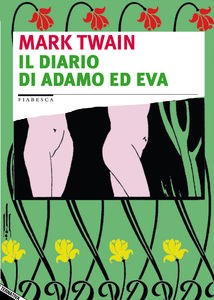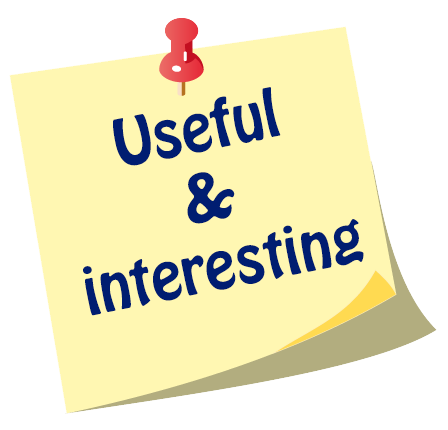
This project promotes open access materials and has been funded with support from the European Commission - Erasmus+ program. These materials reflect the views only of the author, and the Commission cannot be held responsible for any use which may be made of the information contained therein.
[Project Number: 2016-1-HR01-KA201-022159]
![]()
Title of Activity
How many facets in one story!
Description of educational activity
Duration: 3 lessons (2 lessons to prepare activity – one dedicated to the performance in class)
Pupils’ age: 15-16
Organization of the class of pupils: individual, pair and group work
The aim of the lesson: This activity is aimed at making students aware of the endless responses to the reading of a story: once they have carefully read it and grasped the author's message, they will be free to get a closer insight into it, change it, compare it, picture it, reverse it, refuse it, perform it, apply it in their real life, make a film or draw a comic of it .They will realise that it is live matter in their hands. It is therefore clear it is of paramount importance to know all the details and narrative techniques included in the text, to use imagination and creativity and to devote oneself to reading as a pleasant and enjoying activity.
In order to achieve this goal, the cubing method appears to be the most suitable technique to this purpose. When drawing on it, more faces can be added to the main ones so that each student could foster his/her imagination
First cube
- Describe it– Describe the main characters' physical features, habits and behaviours
- Compare it – Compare this story to others dealing with the same theme, even belonging to other literary and artistic genres
- Associate it – What are your thoughts when reading Adam and Eve's inmost feelings/diary?; name other real situations (girlfriends, sisters, mothers, grandmothers/ boyfriends, brothers, fathers, grandfathers) or literary / artistic contexts that you may associate the text with.
- Analyse it – a complete analysis of the text (author, title, plot, characters, places, time, themes)
- Apply it – Write one or more pages of a diary in which you outline a "bizarre" behaviour typical of a female/male figure you know
- Argue for and against it/Debate it – Express and motivate your ideas, supporting your point of view related to Adam's or Eve's behaviours
Second cube
- Dramatize it – dramatize a passage from the book, trying to imagine a dialogue between the two main characters (the book is made up of two diaries so, there is no verbal interaction between them)
- Cast it – choose the actors to whom you would assign the different roles
- Memorize it –choose a particularly meaningful passage from the book, learn it by heart and act it out in front of the class
- Set it to music –choose some music which could be linked to the text
- Illustrate it – choose a picture or a sculpture that may represent the text
- Change it into a cartoon- draw a comic on a passage from the text
Third cube
- Enjoy it – enjoy yourself while skimming and scanning the text
- Turn it upside down – tell the story from God's point of view or from Cain's or the snake's perspective-
- Change it – change and transform something you didn't like in the story
- Satirize it –what would Adam and Eve argue nowadays? Imagine an ironic and funny scene on the most popular reasons for misunderstandings between girls and boys or on their different views of the world.
- Conduct an interview – (interview the main characters. they are willing to disclose their experiences) imagine you were interviewing the main characters on the man-woman relationship. Provide the answers!
- Make it known-- prepare a poster, highlighting a particularly meaningful passage
Support materials:
- the book
- Three templates to shape the three cubes
- Cardboard to build the cubes
- Students' works
- 18 worksheets corresponding to the faces of three cubes, devise dby the teacher to show students the different learning paths/tasks to carry out
Activities:
In order to make the most of the following activity, students have to read the book thoroughly.
1. each student will have to work individually and in pair on the activities shown on the 18 faces of the three cubes as well as to make appropriate references to some parts of the plot.
2. students will have to prepare a presentation of their works: ach of them will cast the different dice on every face and will have to present his/her output/work regarding the request and stick it on one of the billboards, already made in class
Great importance will be given to debriefing: a moment devoted to reflection, reassembling and analysis of the activity, thus promoting the collective exchange of opinions, the detection of difficult problems and, finally, the results of the learning process
Evaluation and assessment method:
In order to evaluate the activity, students are asked:
- to orally present their works
- to present their homework
The quality of the students' homework and their active participation in class will be taken into consideration for their evaluation.
Effect of the activity on RSP reading:
the main themes as well as the ironic and poetical way of dealing with them, the possibility of discussing the relationship between boys and girls, the suggestion of workshops closely linked to the text contribute to increasing young people’ interest and pleasure in reading and writing, as well.
Connection to curriculum
Grade: 2nd grade
Scientific curriculum: during the second year the study of literature is focused on
- improving oral and written skills and competences.
- improving reading skills, understanding and analysing, specifically, literary texts, but also devoting attention to non-literary texts and non-verbal languages.
- learning how to build up and understand the historical and cultural context regarding the texts
Knowledge:
- Singling out the context, the aim and the addressee of the communication;
- Learning the different reading techniques;
- Developing reading fluency
- Improving reading comprehension
Skills:
- Dealing with different communicative situations
- Understanding other people's point of view in formal and informal contexts;
- Applying different reading strategies;
- Singling out the different elements of communication;
- Searching, finding and selecting information;
- Expressing ideas and supporting arguments
- Selecting appropriate media
- Reflecting on learning
- Learning by playing
- Drawing conclusions
- Asking clarifying questions
- Improving presentation before an audience
- Improving use of vocabulary, spelling, syntax and expression
Bibliographic reference to be used during the activity
Italian version
Il diario di Adamo ed Eva
Original title: The diaries of Adam ed Eve
Translator: G. Sordini
Editore: Stampa Alternativa
Collana: Fiabesca
Year of issue: 1999
(First published in the 1905 Christmas issue of the magazine Harper's Bazaar, with te title Eve's diary and in book format in June 1906 by Harper and Brothers publishing house).
Pages: 80
EAN: 9788872265338

Digital sources
Audiobooks:
Eve’s diary
- Italian version
https://www.youtube.com/watch?v=Rc7OTUkUxLg
https://www.youtube.com/watch?v=Dzp7p9FKKIg
Adam and Eve’s diary
- English version
https://www.youtube.com/watch?v=jt21eZIhGZ4
https://www.youtube.com/watch?v=yNrBoedfJHA
https://www.youtube.com/watch?v=QoQZ_weijTQ
Results
The expected outcomes of the lesson are that the students will be able to:
- recreate the story many time with different means of communication
- establish relationships between texts from different literary genres
- compare their own interpretations with other people's views
Recommendations
Such a methodology implies the creation of creative and effective learning moments/environments in order to:
- enrich students' experience and knowledge;
- favour research;
- promote cooperative learning
- make students aware of their learning style;
- turning traditional teaching activities into active workshops
Contact
X gimnazija ''Ivan Supek''
Ul. Vjekoslava Klaića 7
10000
Zagreb
E-mail: partners@handbook4rspreaders.org










